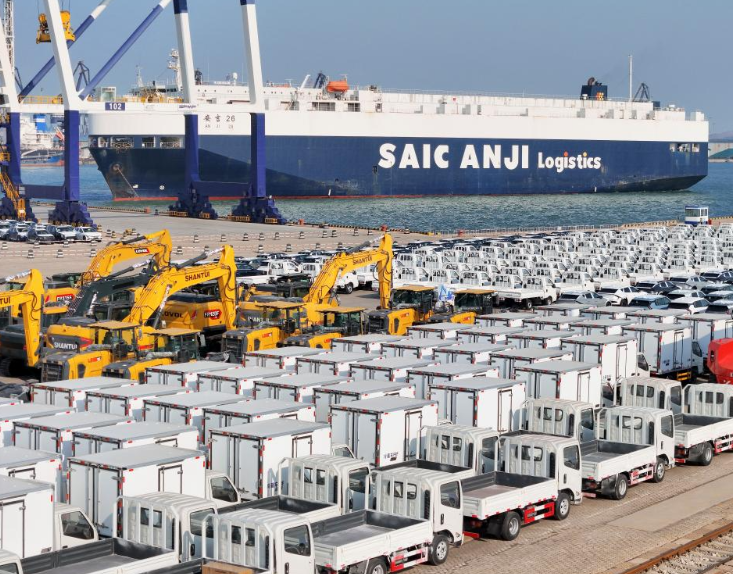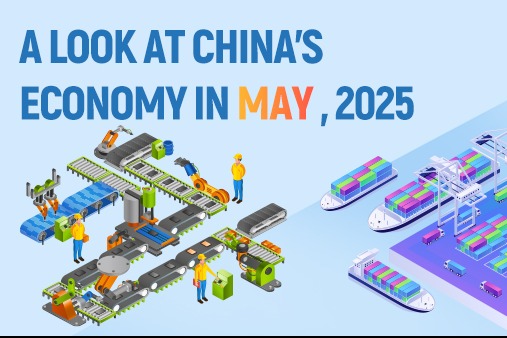US faces blowback from latest tariff hikes


The United States' latest wave of tariff hikes may have the consequence of further strengthening trade cooperation between China and its other key trading partners, according to Chinese and foreign analysts.
Amid strong opposition, US President Donald Trump on Wednesday signed an executive order on the so-called "reciprocal tariffs", imposing a 10-percent "minimum baseline tariff" and higher rates on certain trading partners.
The policy includes tariffs as high as 46 percent on imports from Vietnam, 34 percent from China, 24 percent from Japan and 20 percent from the European Union, according to media reports.
China's Ministry of Commerce said on Thursday it would take firm countermeasures to safeguard its interests and enhance coordination with the EU, Japan and South Korea on key trade issues.
Speaking at a news conference in Beijing on Thursday, Foreign Ministry spokesman Guo Jiakun said there are no winners in a trade war.
China urged the US to reverse its wrongful imposition of "reciprocal tariffs", and address economic and trade differences with China and other countries through equal, respectful and mutually beneficial negotiations.
The US move marks a further departure from its long-standing commitment to multilateralism and the most-favored-nation principle under the World Trade Organization framework, said Mei Xinyu, a researcher at the Chinese Academy of International Trade and Economic Cooperation in Beijing.
Mei added that the China-proposed Belt and Road Initiative could serve as a fallback mechanism to support the multilateral trading system.
He said that China is likely to strengthen ties with Southeast Asia, as well as with Japan and South Korea, to mitigate the fallout from Washington's protectionist turn.
Given the complex and ever-changing international landscape, He Yadong, a spokesman for the Ministry of Commerce, said that China and the EU should uphold the independence and stability of China-EU economic and trade relations.
Both sides have agreed to communicate regularly at the ministerial level on economic and trade affairs and to strengthen exchanges on major China-EU economic and trade issues, He said at a news briefing in Beijing.
Qian Wei, chief analyst of overseas economy and major asset classes at China Securities, noted that initial expectations centered on the EU and China, but the actual scope turned out to be much broader, with emerging markets facing even higher tariffs.
As the market had not fully anticipated the imposition of uniform and large-scale tariffs on emerging markets, the impact on those economies could be substantial, said Qian.
John Keane, a professor of politics at the University of Sydney, said that the real loser in this situation will be the US. By targeting major global economies and imposing steep tariffs on Chinese exports, the US risks facing significant blowback.
"While Washington promotes the idea of 'reindustrializing' as a strategic response, many economists are skeptical. The reality is that today's most advanced industrial investments are deeply embedded in complex global supply chains," said Keane.
"In sectors like electric vehicles, the idea that the US could quickly catch up with players such as BYD and other leading Chinese manufacturers is a joke," he added.
US Senator Susan Collins, a Maine Republican, also expressed concern: "If these tariffs go into effect, it will be so harmful. And as price hikes always do, they will hurt those the most who can afford them the least."
Canadian Prime Minister Mark Carney said the US "reciprocal tariffs" will "fundamentally change the international trading system". Canada would fight US tariffs with countermeasures, although his country and Mexico were not on the list of new tariffs, he added.
"There's only one conclusion: Trump is convinced that he's smarter than the many economists and business leaders who have urged him not to raise tariffs and risk a trade war," Anthony Moretti, an associate professor in the Communication and Organizational Leadership Department at Robert Morris University in Pennsylvania, told China Daily.
In the first two months of 2025, the US remained China's third-largest trading partner, with total bilateral trade reaching 733.67 billion yuan ($101 billion), up 3.5 percent year-on-year, according to the General Administration of Customs.




































